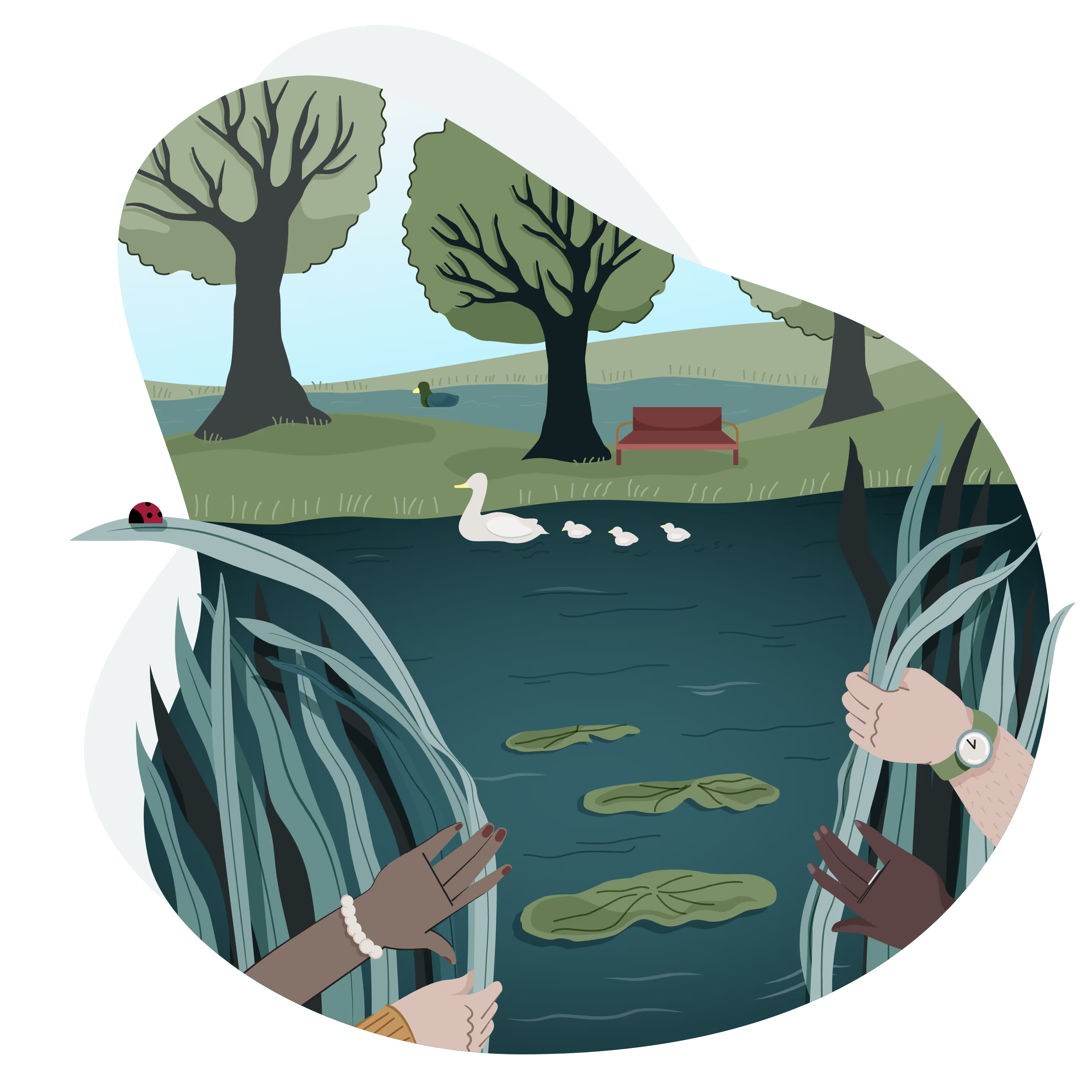Mission: to advance inclusive and equity-focused solutions for broad-scale environmental challenges.
We answer ecological questions at the intersections of many disciplines, which means that our research questions require knowledge and expertise from a diverse team.
Because the theory, methods, and approaches to address these types of questions are sometimes lacking, we create new subdisciplines, build research infrastructure, and develop new approaches to conduct our work.

Themes and disciplines
Ecology at scale

Landscape limnology, Macrosystems ecology, Ecosystem ecology, Biogeochemistry, Data science

Integrated ecology and environmental justice

Environmental justice, Social sciences

Research cultures & practices

Research ethics, DEI in science, Organizational psychology, History and philosophy of science, Higher education

How we study
Asking convergent research questions

Innovative, transformative, creative | Integrative, systems-oriented | Societally-relevant, problem-driven | Collaborative
Being at the forefront of new fields

Integrative, boundary spanning | Broad-scale, multi-scaled, multi-themed, time & space | Interdisciplinary & inclusive
Developing research infrastructure & approaches

Data-intensive science | Open science | Team science | Interdisciplinary & inclusive | Accessible, extensible, reproducible
Macrosystems ecology and landscape limnology
We have always been interested in understanding patterns among ecosystems across broad scales of space and time. Because ecology at scale was still an emerging research area when we opened our lab, the theoretical underpinnings, research infrastructure, tools, and approaches needed to conduct the work were lacking.
Therefore, a significant part of our research program has been to form and inform the development of landscape limnology and macrosystems ecology, fields that seek to understand lakes and ecosystems, respectively, at scale. For instance, we built open-access research tools and infrastructure and helped develop approaches needed to conduct ecology research at scale.
Ecology and environmental justice at scale
A central focus of our research is humans’ roles in changing the environment. For example, we ask how climate change and land use intensification affect productivity and biota in lakes across the nation. We also examine how sampling designs and who conducts research affects our understanding of ecosystem health.
Recently, we began incorporating environmental justice principles and ideas into our research program more explicitly. We want to understand whether ecological research and its applications support people’s fundamental human right to equitable access to lakes and nature, and the many benefits they provide.
Inclusive and effective research cultures and practices
Answering our research questions requires us to lead or join collaborative teams. We have become experts in bridging disciplines to address major challenges requiring multiple perspectives, approaches, or types of data. As women ecologists, we also know that STEM disciplines are not as inclusive as they need to be. Therefore, we conduct research with experts in research ethics, higher education, and social sciences to better understand research cultures. Our long-term goals are to effectively conduct convergent research and promote more inclusive research environments.



